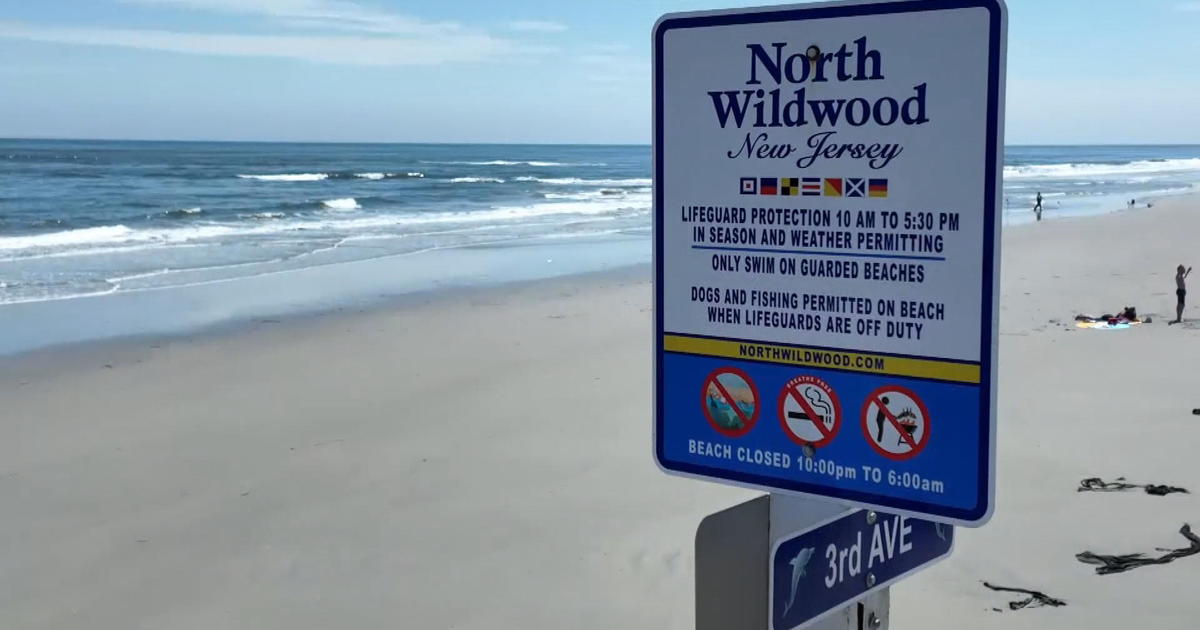Supreme Court Takes Up New Jersey Sports Betting Case
WASHINGTON (CBS) -- The U.S. Supreme Court heard oral arguments Monday in a case that could open the floodgates for legalized sports betting nationwide. The case also has broader implications when it comes to states rights.
The Tenth Amendment of the U.S. Constitution prohibits the federal government from forcing states to enact laws or enforce federal law. This case, NCAA vs Christie, centers around New Jersey's 2012 attempt to partially repeal a state law criminalizing sports betting to allow casinos to take such bets. The NCAA, NFL and other leagues sued New Jersey to stop them, arguing that the Professional and Amateur Sports Protection Act (PAPSA) forbid such an action.
The question before the court is whether the federal government can force a state to keep a law on the books that it seeks to partially repeal.
"Letting the federal government get involved in states being able to govern their own citizens in a broad and permissible way, as done here, is dangerous for everyone," New Jersey Gov. Chris Christie told reporters outside of the court.
He says states have a right under the Tenth Amendment to govern and set the laws the people of the state see fit to have within their borders. He believes PAPSA is overreaching because it allows some states, Nevada, Montana, Delaware and Oregon, to maintain a form of sports betting, but forbids the rest of the states from cashing in on such bets. New Jersey voters passed a referendum to approve sports betting 2-to-1.
"The federalism that protects us allows states to govern its people in accord with he wishes of the people of that state," says Christie.
The justices peppered counsel on both sides with questions. Justices Elena Kagan, Anthony Kennedy, Sonia Sotomayor and Stephen Breyer all probed into the line for states rights. Justice Neil Grouch asked about the federal government's actual regulation of the industry, which it spends zero dollars on each year.
"Congress can preempt an area, but cannot tell a state how to regulate it," said Justice Breyer while questioning counsel for New Jersey.
"Doesn't this law force New Jersey to keep a law the state does not want?" asked Justice Kennedy.
But the justices also pushed back, asking New Jersey's lawyers whether prohibiting a state from regulating an area was the same of telling a state what regulations to put in place.
Lawyers for the NCAA argued that sports betting undermines the integrity of the game. They also argued that the federal government through he passage of PAPSA preempted state law on the subject of sports betting.
"But why didn't Congress just prohibit gambling enterprises?" asked Justice Samuel Alito.
Justice Sotomayor laid out three possible outcomes for the case:
- New Jersey's partial repeal is allowed by PAPSA and the court avoids the constitutional question of whether states' rights are implicated under the Tenth Amendment.
- PAPSA does not permit repeal so the statute is unconstitutional.
- The statue permits complete repeal, not partial repeal so it is constitutional, but New Jersey was incorrect in its application of the law.
Justice Breyer attempted to crystallize the issue in the case.
"PASPA addresses what kind of law a state may have without a regulating scheme (in that area)…therefore telling states what they must do," said Breyer.
The justices hinted that the court would prefer to avoid the constitutional issue and to find a way to allow the law to stand.
The court is expected to decide on the case during the first half of the year. If New Jersey is successful, Christie says sports betting could begin in New Jersey in a matter of weeks. Pennsylvania and about a dozen other states already passed laws allowing sports betting pending the ruling by the high court.
If New Jersey loses, many court watchers predict the ruling could open the door to more interference by the federal government in areas like legalization of marijuana and sanctuary cities.



